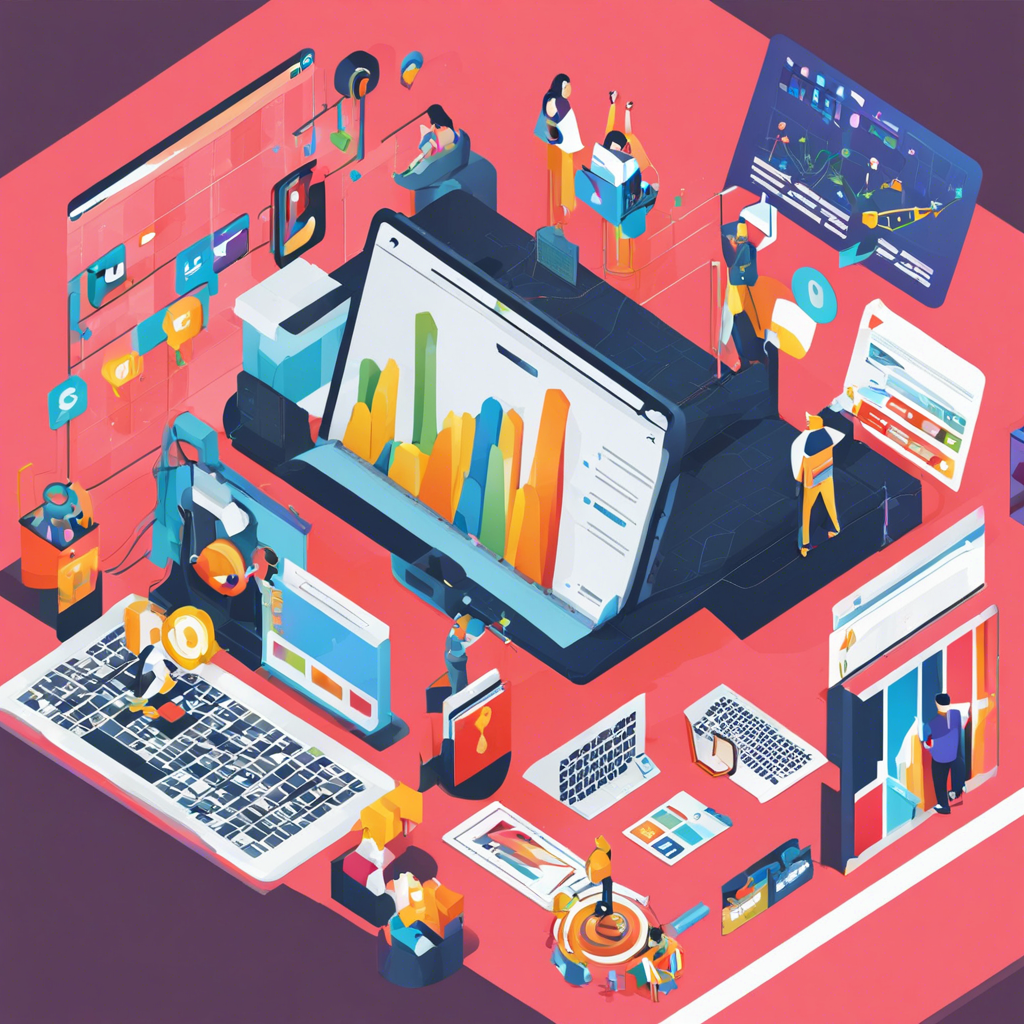Explore how AI is revolutionizing search engine marketing, enhancing ad targeting and content generation while raising ethical considerations.
The field of search engine marketing (SEM) is undergoing a remarkable transformation driven by the rapid advancements in AI technology. As AI continues to permeate various industries, its impact on SEM is particularly noteworthy, offering both opportunities and challenges. This article delves into the multifaceted ways AI is reshaping the landscape of search engine marketing, from personalized ad targeting to innovative content creation, while also addressing the ethical considerations that arise in this evolving environment.
AI’s Role in Targeted Advertising
AI has become the secret weapon in the arsenal of search engine marketers, offering unprecedented capabilities in ad targeting. By analyzing vast amounts of data, AI algorithms identify patterns and preferences, enabling marketers to deliver precisely tailored advertisements to specific user segments. This level of personalization not only results in higher click-through rates but also significantly boosts conversion rates, as shown in a Forbes Tech Council article. The synergy between AI and ad targeting is reshaping the industry, ensuring that marketing efforts are not only efficient but also highly effective.
The evolution of AI in search engine marketing has been transformative. Initially, marketers relied on manual keyword research and demographic targeting. However, the manual approach was time-consuming and often resulted in broad-brush strategies that lacked precision. With the advent of AI, the game changed. AI algorithms now analyze user behavior, search patterns, and demographic data to create highly specific audience personas, allowing marketers to craft ads that resonate deeply with their target audience.
Content Generation and AI
AI-Powered Content Creation
In the realm of content generation, AI is not just a tool but a creative partner. With natural language processing (NLP) and machine learning algorithms, AI can generate content that is both engaging and optimized for search engines. From blog posts to product descriptions, AI-generated content saves time and resources while maintaining a high level of quality and relevance. However, it’s important to strike a balance between automation and human creativity, using AI as a tool to enhance, not replace, human ingenuity.
Balancing Automation and Creativity
While AI excels at generating content, there is a growing concern about the potential for over-dependence on automation. Maintaining the human touch in content creation is essential, especially in industries where personalized and creative content is paramount. AI should be viewed as a valuable assistant, aiding in content generation while leaving the final say to human experts who can ensure the content is engaging, accurate, and aligned with the brand’s voice.
Ethical Considerations
Privacy and AI in SEM
With great power comes great responsibility, and this is particularly true in the realm of AI and search engine marketing. As AI algorithms collect and analyze vast amounts of data, questions of privacy and data security come to the forefront. Marketers must ensure that they respect user privacy and adhere to ethical guidelines in data collection and usage. Additionally, the potential for AI bias and the need for transparency in AI decision-making processes are crucial issues that the industry must address.
Questions and Answers:
What are the ethical implications of AI in SEM regarding user data privacy?
AI in SEM carries significant ethical considerations regarding user data privacy. As AI algorithms collect and analyze vast amounts of user data, there is a risk of privacy breaches and unauthorized data usage. Marketers must adhere to strict data protection regulations, such as GDPR in the EU and CCPA in California, to ensure user data is handled securely and ethically.
How can AI-generated content maintain a balance between automation and human creativity?
AI-generated content should be viewed as a tool to enhance human creativity, not replace it. Marketers can use AI to generate initial drafts, saving time and resources. However, human editors should review and refine this content, adding a layer of creativity, accuracy, and brand voice that AI may not fully capture. This approach ensures the best of both worlds, with efficient content generation and the human touch.
What is the potential impact of AI bias in search engine marketing, and how can it be mitigated?
AI bias occurs when the data used to train AI models contains inherent biases, leading to unfair or discriminatory outcomes. In SEM, this could result in inaccurate ad targeting or biased content generation. To mitigate AI bias, marketers should ensure diverse and representative data sets for training AI models, regularly audit AI algorithms for signs of bias, and implement ethical guidelines for data collection and usage.
Conclusion
The integration of AI in search engine marketing is a game-changer. It enhances ad targeting, revolutionizes content generation, and offers unprecedented efficiency. However, it also brings ethical challenges, particularly in data privacy and bias. The future of SEM lies in striking a balance between leveraging AI’s power and ensuring ethical practices. Marketers who embrace AI while maintaining transparency, accountability, and respect for user privacy will lead the way in this evolving digital landscape.
External Links:
1. AI Revolutionizes Advertising
2. AI Content Writing Tools
3. AI Transforms Search Marketing
